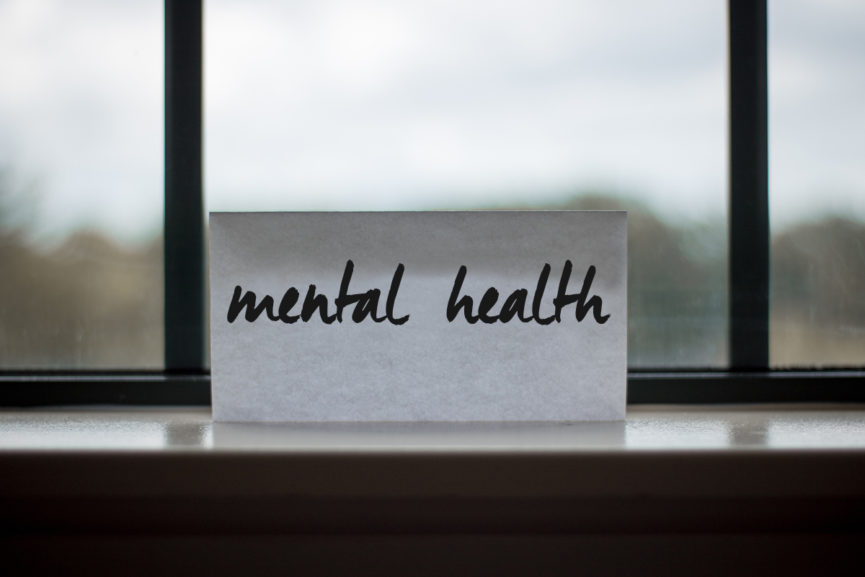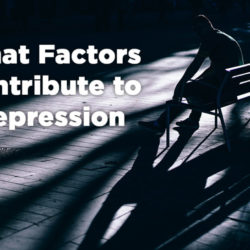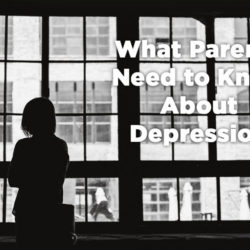Photo from Unsplash
My back is glued to the bed. Can’t get up. Am I depressed?
It’s hard to talk about it. The stigma lingers. Would you easily say, “I’m depressed” to a friend who says, “Kumusta?” I won’t. I’ll need at the very least, “Kumusta ka?”, or “Are you ok?” Yet, sometimes even that won’t work. Someone close to me has to really want and care enough to know. Maybe “You look sad. Want to talk about it?” would do better.
It’s harder if you can’t even understand what’s happening to you, and harder still if it’s someone you love who has been acting strangely and all the more to let others know that you or your child has been diagnosed with clinical depression.1
“Me? My child? How could it happen to my perky, emotionally stable, spiritually active family?”
It can happen to anyone. I am not a health professional and had not been diagnosed with depression. But I have seen how family and close friends get affected by mental illness.2 And I have likewise seen how people get healed.
I knew I had to do something about the stigma I and the rest of society have given it. I discovered that my ignorance about mental illness explains why I get so taken aback by the fact that it could happen even to the happiest of individuals, to the very best of families.
After losing my dad to cancer, I gave myself freedom to grieve, but did not plan to stay in it for long — only to be surprised at how death in the family can unravel more complex issues I never thought existed. I had days of not wanting to leave my room, and not wanting to get up from bed, thinking I could just sleep off my sadness. But God graciously intervened with comfort, using my loving husband and kids to strengthen me. I have also been witness to how my father fully surrendered to Jesus, and this truth has peacefully assured me of the eternal life my Papa enjoys in the Lord.
In a community such as a church, where love, joy and contentment abound, there are people who still think grief, depression, anxiety, and other mental conditions are simply spiritual attacks or consequences of sin and lack of faith. In some families, one merely gets scolded for being weak or told to simply snap out of it, and stop all the drama. I am however so blessed to belong to a church that strongly supported me in prayer and walked alongside me during my grief. I did not feel pressured to overcome grief by a certain deadline. God also perfectly provided a church ministry called Griefshare, and through it, I got to journey with fellow-grievers, as we supported each other, and gained a deeper understanding of how God’s truths help us recover from grief, despair, and even depression.
It was also in church where a mental health professional held a “Women in Depression” seminar. There I learned about how hormones contribute to some mental conditions. Hormonal levels change like crazy especially at adolescence, pregnancy, and post-partum. During these times, a woman’s tendency to sink into depression is more probable, especially when triggered by loss, tragedies, and overwhelming stress attack. I was enlightened about various kinds of mental health conditions such as bipolar, anxiety, and eating disorders, schizophrenia, and addictive behaviors. I discovered possible causes, contributing factors, and the need for a multidisciplinary approach to it. In small discussion groups, counselors, medical practitioners, patients and survivors tackled the value of acceptance, faith, therapy, medication, support groups, and the healing power of God.
Because of the awareness I gained, I became more confident in ministering to those who showed signs of mental disorder. I began to understand myself too – pulling me through two pregnancies, post-partum blues and the ordeal of seeing my brother suffer from and dying of cancer. I was able to identify and anticipate my unusual weepiness, my touchiness and a general feeling of heaviness, while finding no reason for it. I would often feel guilty about how sorrowful I felt when I knew there were definitely a lot more reasons to be grateful and satisfied.
Every time friends share how unexplainably sad they are, how desperately they want to take their own life, or how stuck they feel in that pitiful state no matter how they want to get out of it; or when they open up about how their child or sibling is exhibiting symptoms indicative of a mental illness, I find myself more compassionate, and able to sincerely empathize.
Astounded by the statistics of the state of mental health in the Philippines [See sidebar], I was all the more convinced that education must be a priority to help dissipate the stigma and improve our nation’s mental health. You and I can do something. Here are some ways we can start:
Reach in. We must start with ourselves.
- Learn! Read, attend talks, and listen to professional advice about mental health.
- Make time for reflection and sort out the clutter in your mind.
- Take steps to grow your faith and foster hope through spiritual exercises: prayer, meditation, and meeting regularly with a support group.
- Blog. Vlog. Creatively express your emotions and thoughts, and process possible triggers. Keep a daily thanksgiving list.
- Get fit. Adapt a healthier lifestyle: eat a nutritious diet, get adequate sleep, work out. Make time for leisure –paint, learn a new hobby, dance, sing! Go for regular sanity breaks (retreats, travel, simple nature walks) and minimize stressful activities. Say “no” to involvements that burden you excessively: start with lesser TV news and social media.
If you are mentally healthy and spiritually growing, you can be effective help to others.
Reach out. Be extra aware of each family member’s emotional and mental state. Take time to really find out how they are doing. Is there a broken relationship they are grieving over? Are there unmet expectations of self and others? Are we putting too much pressure on academic performance and grades rather than putting more premium in building relationships and meaningful memories? Among our friends, do we merely say, “Kumusta?” or are we genuinely concerned about them? Be sensitive to what is going on in their lives, and offer help.

Hold it. Hold your judgment. Instead of scolding, listen. Instead of finding immediate solutions, pray. Sometimes, negative feelings are consequences of poor choices, but this is not always the case. Sometimes, it’s something inside the body that may have gone haywire. Remember, mental illness is similar to any medical condition, like, say, diabetes. Remember, too, that there is a cure, many ways to cope, and available professional help.
Hold up. Be supportive through prayer, your presence, and professional help. Prayer for and with someone suffering can mean a lot. Be available, be there for them, validate their feelings, and offer to accompany them and get professional help.
Hold on. Faith in a Trustworthy Being and a healthy spirit3 can liberate a restless mind. With faith, we foster hope, and allow positive thoughts and biblical truths to rule in our hearts and minds. A counselor may help in examining deeply-rooted issues or tragic events in the past that weren’t addressed. Preventive health is the way to go. Let’s not wait until illness strikes and catches us too weak to even recognize it.
__________________________________________________
1 Depression (major depressive disorder or clinical depression) is a common but serious mood disorder. It causes severe symptoms that affect how you feel, think, and handle daily activities, such as sleeping, eating, or working. To be diagnosed with depression, the symptoms must be present for at least two weeks. https://www.nimh.nih.gov/health/topics/depression/index.shtml
2 Mental illnesses are health conditions involving changes in thinking, emotion or behavior (or a combination of these); …associated with distress and/or problems functioning in social, work, or family activities. https://www.psychiatry.org/patients-families/what-is-mental-illness
3 Romans 8:6 For the mind set on the flesh is death, but the mind set on the Spirit is life and peace.

More into numbers than words, Richelle Joson-Ligot grew up writing merely in her head and in her heart, making up stories and characters, mixing up syllables to mean a new idea, and recording these all on diaries and in cassette. A voice talent, homeschooler, creative consultant, and choreographer, she is gifted in many ways, but considers the best gifts in her life to be the people the Giver has blessed her with – husband Tot, and children Mishka, Nikita, Miro and Yakob.
Related Posts
-
In Sickness and In Health
One night, in October of 1991, I visited a friend about to go through spinal…
-
What Factors Contribute to Depression
What causes depression? Lillian Ng Gui, psychologist and Christian counselor, identifies more possible contributors and…
-
What Parents Need to Know About Depression
Why does depression seem more commonplace these days? Dr. Lillian Ng Gui, psychologist and Christian…




